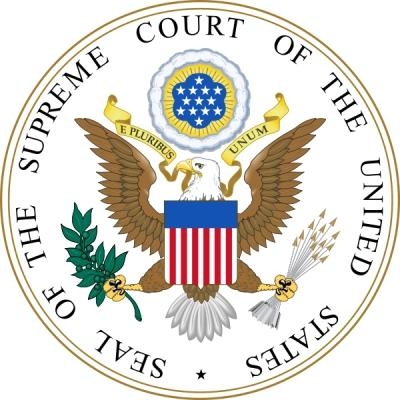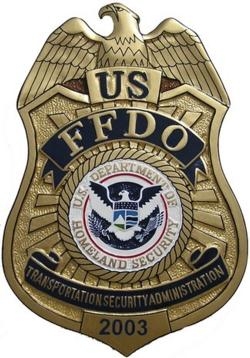Safety Or Retribution? The Supreme Court Will Decide
By Bruce Brandon
The U.S. Supreme Court will hear oral arguments on December 9, 2013 in the case Wisconsin Airlines Corporation v Hoeper. The case will have great significance to the flying public because it will determine what limits are placed on airline personnel when reporting “suspicious” activities to TSA or other law enforcement agencies.

The court granted certiorari (review) to determine the following:
WHETHER ATSA IMMUNITY MAY BE DENIED WITHOUT A DETERMINATION THAT THE AIR CARRIER’S DISCLOSURE WAS MATERIALLY FALSE.
As we all know, the world has changed since 9-11. Some would say as a country we have gone to extremes in our security efforts. This case involves the balancing of an individual’s right to freedom from false accusations and the safety of airline passengers. Like most cases that make it to the U.S. Supreme Court, there isn’t an obvious answer.
Prior to flying for Air Wisconsin (AW) Bill Hoeper had been a sheriff’s deputy, a pilot for 20 years, flown commercially in the Middle East, including flying dignitaries in Bahrain for the U.S. Embassy. After joining AW, he was asked by AW to become a Federal Flight Deck Officer (FFDO) and to train Air Wisconsin flight attendants in self-defense. AW appointed him to be a lead ground instructor on the Bombardier Canadair CL-65 and a Captain on the CL-65. His ground school was enthusiastically received. Hoeper’s supervisor reported that Hoeper “has an excellent attitude and enthusiastically accomplishes whatever is asked of him.”
Hoeper’s career began to unravel when he began training to fly the BAe-146 for AW. Like all air carriers, this training is approved by the FAA and administered by the airline with FAA oversight. A former AW pilot and FFDO testified “… it’s very evident that Air Wisconsin, if you weren’t in the good old boys club or you weren’t liked or you rocked the boat or however you want to put it, your days are numbered.” There was testimony that AW personnel had instructed check airmen to “washout” or “take down” pilots with whom AW had disagreements. Captain Hoeper wasn’t one of the “good old boys.” Hoeper’s brief states that the Colorado District Court characterized the lead ground school instructor as “instigating a ‘hatred conspiracy to get rid of Bill Hoeper’.” Hoeper failed three BAe-146 check rides administered without FAA supervision, passed a “type rating” check ride when FAA
was present (according to AW this check ride didn’t contain all the required events of AW). Hoeper was to be given a “final chance” check ride for the remaining events. During the practice ride prior to this last chance ride, Hoeper felt he was not being trained properly, threw his headset down, abruptly slid his seat back, yelled at the instructor and ended the training to call the Air Line Pilots Association legal department. Hoeper was not fired until the next day.
Hoeper, the day of the stopped practice for the last chance check ride and still employed by AW, decided to return to his home in Denver. AW made the airline reservations and provided Hoeper a ride to the airport shortly after this incident. Several hours after the incident occurred, AW decided to call TSA and told them, as the jury found, two relevant statements:
The first statement was: “[Respondent] was an FFDO who may be armed. He was traveling from [Dulles to Denver] later that day and we were concerned about his mental stability and the whereabouts of his firearm.”
The second statement was: “Unstable pilot in FFDO program was terminated today."

As a result of the AW call, the airplane taxing for takeoff on which Hoeper was a passenger was recalled to the gate and treated by the TSA as a hijacking incident. Hoeper was removed by armed security personnel and his belongings searched on the jet bridge. At the conclusion of this search, TSA determined that Hoeper was not a threat to the flight. He returned to Denver on a later flight that day.
Hoeper sued AW and some of its employees for, among other things, defamation. AW agreed to accept liability for its employees so the sole defendant became AW. The case was tried before a jury for almost three weeks, appealed to the Colorado Court of Appeals, the Colorado Supreme Court and is now to be heard by the U.S. Supreme Court. Until now, it has been found by the above three courts that Hoeper was wronged. The jury found that the statements were false and made with malice and awarded $849,625 in compensatory damages. It awarded $391,875 in punitive damages for AW making knowingly false or recklessly false statements (the punitive damages were reduced by Virginia law to $350,000).
The law at issue is:
49 USC § 44941. Immunity for reporting suspicious activities
(a) In general. Any air carrier or foreign air carrier or any employee of an air carrier or foreign air carrier who makes a voluntary disclosure of any suspicious transaction relevant to a possible violation of law or regulation, relating to air piracy, a threat to aircraft or passenger safety, or terrorism, as defined by section 3077 of title 18, United States Code, to any employee or agent of the Department of Transportation, the Department of Justice, any Federal, State, or local law enforcement officer, or any airport or airline security officer shall not be civilly liable to any person under any law or regulation of the United States, any constitution, law, or regulation of any State or political subdivision of any State, for such disclosure.
(b) Application. Subsection (a) shall not apply to--
(1) any disclosure made with actual knowledge that the disclosure was false, inaccurate, or misleading; or
(2) any disclosure made with reckless disregard as to the truth or falsity of that disclosure.
There are numerous amici curiae (friends of the court) briefs in support of AW to The Court, including one from the United States Department of Justice. Curiously, the USDOJ amici curiae brief to the Colorado Supreme Court was “in Support of Neither Party.”
AW contends that what was reported was substantially true and that it should be immune from liability. They also contend that the Colorado Supreme Court failed to address important legal issues that needed to be decided. This is in stark contrast with what the Colorado Court of Appeals stated:
In sum, we agree with amicus United States that, “[o]nly in the highly unusual situation in which an air carrier has acted with knowing falsity or reckless disregard of the truth or falsity of its statements does the air carrier need to fear being held liable for its statements to TSA....” On the particular evidence presented, this is just such an unusual case.
There are at least three possible outcomes:
- AW waived the right to the determination of the validity of the statements because they weren’t challenged at the trial level;
- The Court could decide from the record whether the statements were true; or
- The Court could remand the cases back to the Colorado Supreme Court for determination of the truthfulness of the statements.
Not surprising, the “facts” and allegations have been strongly contested by the parties. The evidence presented during the trial is conflicting. Space prevents a full discussion in this article. To have a more complete understanding, it is important to read the briefs and appendix located at the URLs below. The appendix is located at aviationbarristers.com/airwisconsinvhoeperbriefsandappendices.
As usual, the devil is in the details. The U.S. Supreme Court has its work cut out it. Hopefully Solomon hasn’t left the room.
(Bruce Brandon is an attorney practicing aviation law)
 ANN's Daily Aero-Term (04.24.24): Runway Lead-in Light System
ANN's Daily Aero-Term (04.24.24): Runway Lead-in Light System ANN's Daily Aero-Linx (04.24.24)
ANN's Daily Aero-Linx (04.24.24) Aero-FAQ: Dave Juwel's Aviation Marketing Stories -- ITBOA BNITBOB
Aero-FAQ: Dave Juwel's Aviation Marketing Stories -- ITBOA BNITBOB Classic Aero-TV: Best Seat in The House -- 'Inside' The AeroShell Aerobatic Team
Classic Aero-TV: Best Seat in The House -- 'Inside' The AeroShell Aerobatic Team Airborne Affordable Flyers 04.18.24: CarbonCub UL, Fisher, Affordable Flyer Expo
Airborne Affordable Flyers 04.18.24: CarbonCub UL, Fisher, Affordable Flyer Expo




